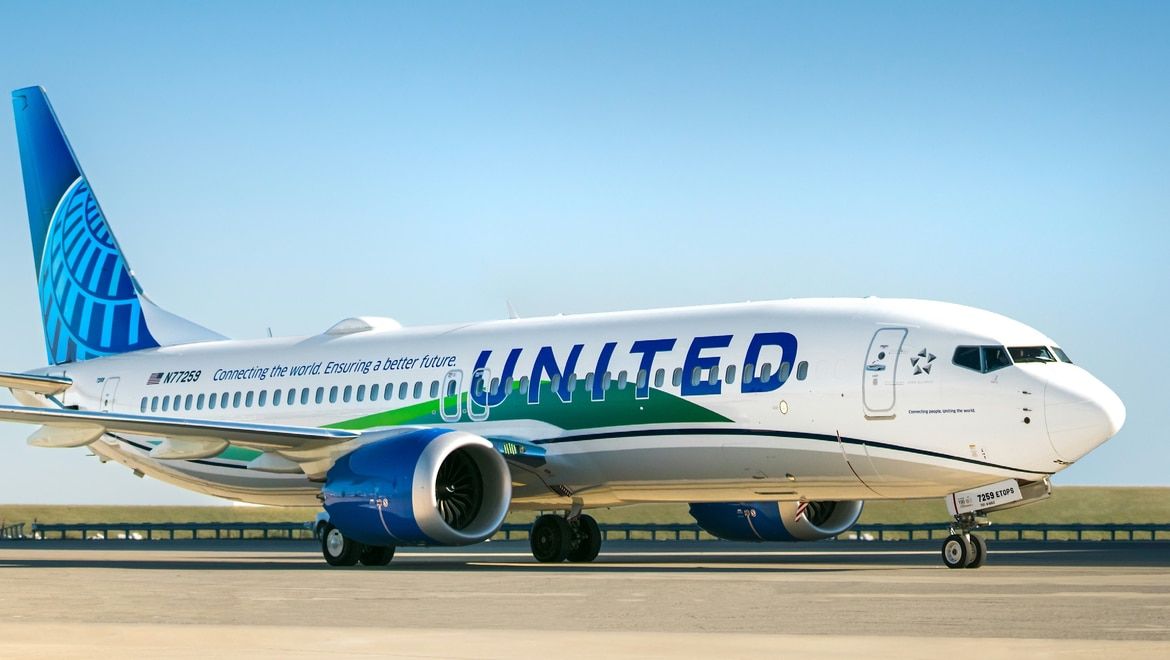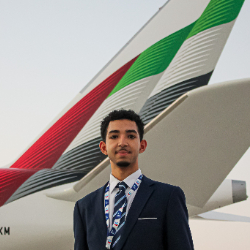As the aviation industry advances in technology, many airlines have made it a priority to reduce their environmental footprint. One way they are doing so is by introducing Sustainable Aviation Fuel into their operations.
A Sustainable Aviation Fuel (SAF) is a biofuel that works the same as jet fuel, but with a much lesser environmental impact. Resources include corn grain, oilseeds, algae, and certain crops grown especially to produce SAF. As the newfound aviation fuel's resources are mainly produced using agricultural methods, the transition from conventional jet fuel will provide farmers with another potential market to sell their crops, positively affecting the economy as well.

Due to the lesser aromatic components of the fuel, Sustainable Aviation Fuel is also designed to ignite better in aircraft jet engines. This not only reduces the environmental impact of SAFs, but also improves performance and efficiency in aircraft that use it.
Recently, United Airlines operated its first flight with 100% Sustainable Aviation Fuel. The flight was operated between Chicago O'Hare Airport and Washington Reagan Airport utilizing a Boeing 737 MAX 8. The MAX is already marketed for its increased fuel efficiency and versatility in the sky, but equipping the plane with SAF added to its environmental appeal. The flight was completed successfully, and United is now looking at more ways to integrate SAF into its daily operation.
American Airlines Unveils 15 New Routes for 2026 Expansion » U.S. Government Admits Liability in Fatal Mid-Air Collision » Top 5 Unique Gifts for Pilots & Aviation Lovers Under $50 »
Comments (0)
Add Your Comment
SHARE
TAGS
INFORMATIONAL Sustainable Aviation FuelSAFEnvironmentEnvironmental ImpactRECENTLY PUBLISHED
 The Top 5 Longest Flights in the World
Technology continues to transform the way we live, work, and connect. Few industries embody this more than air travel, which has effectively shrunk the world in recent years. Journeys that would have once seemed impossible can now be completed in mere hours. Here's a look at the World's Top 5 flights, ranked by distance.
INFORMATIONAL
READ MORE »
The Top 5 Longest Flights in the World
Technology continues to transform the way we live, work, and connect. Few industries embody this more than air travel, which has effectively shrunk the world in recent years. Journeys that would have once seemed impossible can now be completed in mere hours. Here's a look at the World's Top 5 flights, ranked by distance.
INFORMATIONAL
READ MORE »
 Top 5 Unique Gifts for Pilots & Aviation Lovers Under $50
Discover five budget-friendly aviation gifts for under $50, ranging from stylish polarized aviator sunglasses and airplane pattern ties to practical VFR sectional flashcards. This curated list offers the perfect mix of professional utility and industrial decor for every pilot and flight enthusiast.
STORIES
READ MORE »
Top 5 Unique Gifts for Pilots & Aviation Lovers Under $50
Discover five budget-friendly aviation gifts for under $50, ranging from stylish polarized aviator sunglasses and airplane pattern ties to practical VFR sectional flashcards. This curated list offers the perfect mix of professional utility and industrial decor for every pilot and flight enthusiast.
STORIES
READ MORE »
 Memphis at Midnight: Inside FedEx's Global Superhub
When considering major hub airports in the United States, few might think of Memphis International Airport (MEM). This facility, which is only the second busiest in Tennessee based on passenger volumes, might not boast an impressive flight schedule from passenger airlines. However, across the airfield from Memphis' passenger terminal, FedEx has turned the airport into a critical cargo superhub. In fact, between the hours of 10:00 PM and 5:00 AM, Memphis becomes the busiest airport in the world.
INFORMATIONAL
READ MORE »
Memphis at Midnight: Inside FedEx's Global Superhub
When considering major hub airports in the United States, few might think of Memphis International Airport (MEM). This facility, which is only the second busiest in Tennessee based on passenger volumes, might not boast an impressive flight schedule from passenger airlines. However, across the airfield from Memphis' passenger terminal, FedEx has turned the airport into a critical cargo superhub. In fact, between the hours of 10:00 PM and 5:00 AM, Memphis becomes the busiest airport in the world.
INFORMATIONAL
READ MORE »



